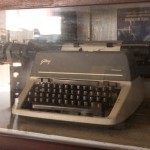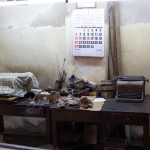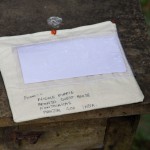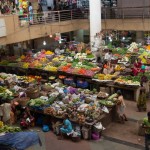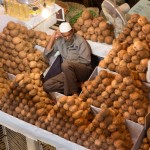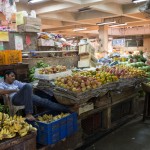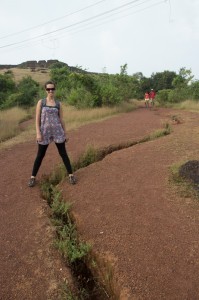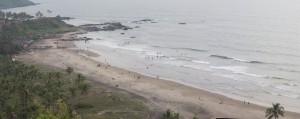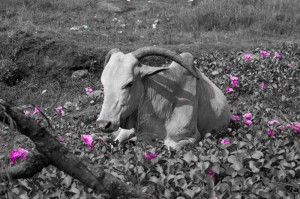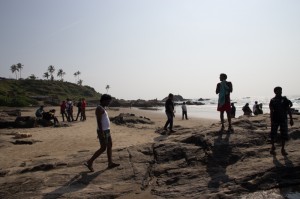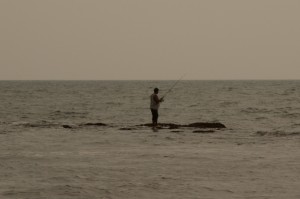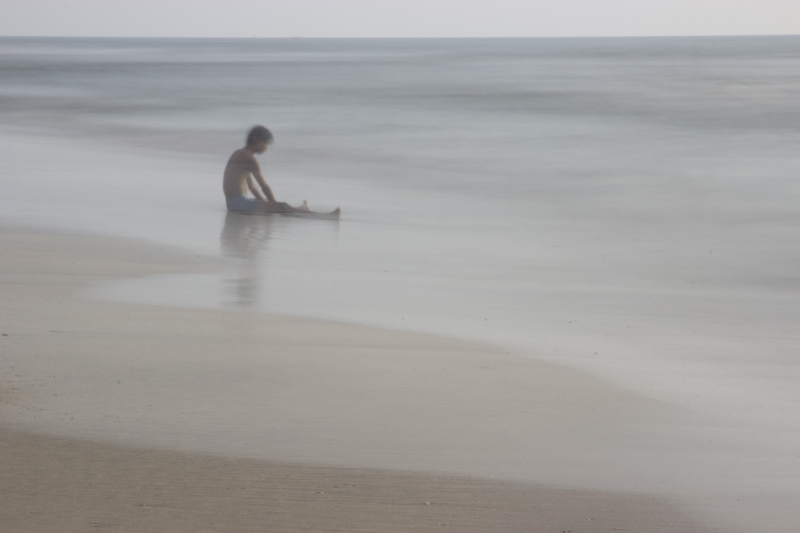It was only going to be so long before we fell afoul of the hideous bureaucracy that India is famous for and that day caught up with us as we decided to pay a visit to the Panjim Post Office.
We had a simple mission, and that was to find, for sale, an envelope which could make a small packet and then send it back to England. At home this would take about ten minutes at any post office.
We arrived at the post office and looked about. Despite there being fifteen counters, only about three were manned. Of these three, one marked ‘multi-purpose’ had a queue stretching back, whilst the others had clerks sat heads down clearly not wanting to be disturbed. So disturbing one of these clerks we discovered that to send a letter we had to join the long queue… fine.
Eventually we made it to the front of the line and we were told that in order to buy an envelope we had to go to counter number ten. I chuckled as this was beginning to sound familiar but took it all in my stride. I could see however that Nicole was beginning to get a bit agitated.
Counter number ten was closed for lunch and would reopen in ten minutes. Fifteen minutes later a girl arrived back at the desk and told us that they had no envelopes for sale and we would have to visit a stationary shop around the corner. Still keen to complete this simple task we left the building and found ourselves in a small, dark workshop, filled with beaten up old typewriters. Suddenly part of the furniture moved and resolved into a wiry man who apparently owned the place. He explained that he could indeed provide an envelope and asked to see what we wanted to send. Taking our packet he laid it out on a sheet of cotton, made a few folds and whisked it away into a back room where the unmistakable sound of a sewing machine started punctuating the dusty air. Nicole and I exchanged looks of astonishment as the man returned with a neat cloth packet sewn up around the edges. He then sat down, lit a candle and proceeded to seal the edges with red wax, handing back something that looked like it could have cemented peace between two warring nations.
The man then whisked up a form and showed Nicole which fields needed filling in and where everything should go. Ten minutes later, form filled out and address added to the packet we discovered that a copy of a passport would also be required for the post office to send the packet.
Nicole then crossed the road to a Xerox stand to get a copy whilst I had a look about this workshop and took some photos. I asked the man about his typewriters, some of which were laying out in the shop, and some stashed behind glass screen doors in ancient cupboards. He replied that before working as a packaging man he was a typewriter repair technician for twenty eight years. He was holding out hope for a resurgence in typewriters as he had been told that the Russians were on the cusp of getting rid of all their computers. Apparently (and he had this on good authority) Russian officials were fed up with the way documents could move from one computer to another. Of course the best way to combat this would, of course, be to return to the use of the typewriter.
I stood slightly open-mouthed as Nicole came back inside, thankfully giving me the opportunity to change the subject!
We ended up paying RS60 for the envelope which was worth it by a mile, even if it did cost more than an envelope at home, and returned to the post office and its single counter which now had an hour long queue behind it.
All the time we queued, Indians kept wandering in off the street, walking up alongside the queue and pushing in at the front. Sometimes they would linger for a moment and return to the back of the queue and other times they would just stay there and get served. At this point Nicole was boiling with rage and her protests became louder and louder, reverberating around the hall. None of the other Indians seemed to pay much attention though and it was only as we got closer to the front we saw a sign allowing senior citizens the right to push in at the sides.
Finally and after much despair we were close enough to make out the source of the slowness. Our clerk moved like treacle. A single finger ponderously tapped at the keyboard in front of him, his eyes double, triple, quadruple checked every docket another customer handed him before he carefully and thoughtfully moved to address each and every case. Just watching this man work was madness. I wanted to leap over the counter and serve these people myself just to get the job done for him.
And then we were there, at the front of the queue. Nicole and I spread out on the counter, throwing our arms out wide to prohibit anyone from jumping in at the side and distracting the clerk from our task at hand. And with that he took payment and the letter was sent.
…Two hours. Needless to say I think email has a brighter future in India than the typed letter ever will.
